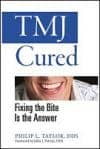A team of researchers from the NYU College of Dentistry (NYUCD) and the NYU School of Medicine (SOM) are partnering with the University of Medicine and Dentistry of New Jersey (UMDNJ) on a major NIH grant to fund the most comprehensive study to date on the underlying causes of temporomandibular disorder, or TMD, a condition characterized by jaw and face pain that often radiates to the neck and shoulders and affects up to 10% of adults.
UMDNJ received a 5-year, $3.1 million award from the National Institute of Dental and Craniofacial Research, part of NIH, to lead the study under principal investigator Karen Raphael, PhD, an associate professor and director of research in the Department of Psychiatry at New Jersey Medical School and an associate professor of diagnostic sciences at New Jersey Dental School.
NYU College of Dentistry, a subcontractor on the grant, received $740,000 to recruit the subjects for the study. The principal investigator for the NYUCD portion of the study, David Sirois, DMD, PhD, is an associate professor of oral and maxillofacial pathology, radiology, and medicine, and associate dean for graduate studies. For the controlled study, Sirois will recruit 120 subjects with TMD and 60 without the disorder from NYUCD’s clinic patient population.
NYU School of Medicine, the other subcontractor on the grant, received $845,000 to observe the subjects in its Sleep Disorders Center. "There is a widespread belief that bruxism (teeth grinding and clenching)—especially while sleeping—causes TMD," said SOM’s principal investigator, Ana Krieger, MD, the Center’s director and an associate professor of medicine. "We will use a variety of measures to assess if bruxism actually leads to TMD," Krieger said, "including videotaping patients as they sleep and taking electromyographs, or electrical recordings of their muscle activity."
The study will also examine two other commonly held beliefs about TMD: that it results from daytime jaw-clenching related to stress, or from a central nervous system disorder known as central sensitization that exaggerates responses to painful stimuli and produces painful reactions to nonpainful stimuli.
"This will be the first study to simultaneously examine TMD patients for bruxism, stress responsiveness, and central sensitization with a wide-ranging series of physiological, psychological, and sleep measurements," Sirois said.
Raphael added, "Our analysis of subgroups of people with different combinations of these possible risk factors will lead to a better understanding of the underlying causes of TMD pain so that targeted treatments can be developed."
Related Articles
NYU College of Dentistry Awarded Grant to Develop Fracture-Resistant Zirconia Restorations
Study Links Immigrants’ Tooth Decay and Gum Infections to Ethnicity and Country of Origin









